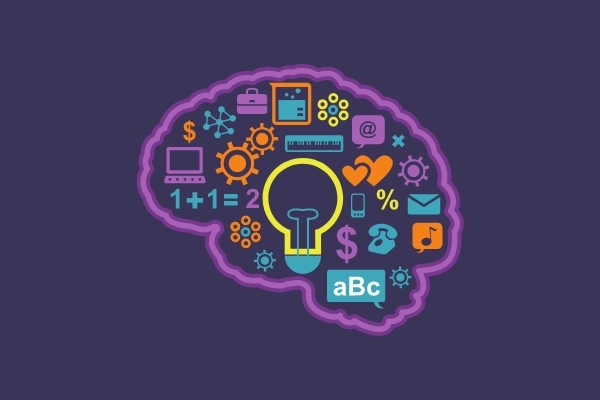Cognitive ability assessments are one of the most powerful predictors of job performance. When used correctly these tests enhance the credibility and objectivity of your hiring process. HR Profiling Solutions’ Cognitive Ability Assessments take the guesswork out of the recruitment process to identify which candidates will provide you with the most value and increase your organisation’s productivity.
What is a Cognitive Assessment?
Cognitive ability assessments measure a person’s ability to think, reason and solve problems. Reasoning skills help a person approach problems, understand how to solve them and apply their reasoning and cognition to come to a viable solution.
Reasoning skills provide a solid foundation for learning, critical thinking, analysis and day to day life. Without reasoning skills, we would merely be following one another robotically, without any opportunity to develop critical thinking or challenge current patterns of thinking.
A person’s cognitive abilities can significantly impact their job role performance. Therefore cognitive ability plays a significant part in a person’s suitability for a position and their overall success.
What does the FinxS Reasoning Assessment Measure?
FinxS Reasoning Assessment tests provide insight and understanding of an individual’s working speed and accuracy within nine different cognitive areas, including Abstract Logical Reasoning, Understanding Logical Processes, Spatial Reasoning, Understanding Social Context, Numerical Reasoning, Verbal Reasoning, Mathematic Logical Reasoning, Word Association and Memory Test.
A reasoning analysis for candidates test focuses on a person’s ability to actively and thoroughly collect, analyse, combine, evaluate and process information. The tests reflect the ability to solve various problems and understand the connections between different pieces of information. The tests measure both the speed and quality of answers. For example, if a person answers all questions in the given time but only answered 50% correctly, this may indicate that the person needs to slow down. The person may need to take more time when completing tasks to improve their quality of performance.
Candidates that score highly in a test tend to quickly understand new concepts, ideas, connections and patterns of thinking, outside of their previous experience. High scoring candidates respond well to training and development in new processes and systems. Top scorers often bring a valuable ‘fresh pair of eyes’ to long-established processes or systems.
A low reasoning test score may indicate a person needs extra support and development in the test area. Employers should consider using step-by-step approaches rather than broad concepts, both during induction and when a significant change occurs later in employment. A person has opted to take their time and answer questions correctly rather than quickly. Ensure attention is paid to speed vs quality.
The Reasoning tests provide self-insight and create a foundation for development. The tests help to predict which work areas the person may experience difficulty. It also provides insight into what type of support the person may require to perform more efficiently and effectively.
Benchmarking
FinxS Reasoning Assessment compares a person’s result against a chosen benchmark population. Identify how the person scored in comparison to a global benchmark, country benchmark or company benchmark.
The percentile score refers to the percentage of candidates who scored less than the person. For example, a score of 25% would mean that 25% of the population has a lower score, and 75% has a higher score.
Why Should You Use Cognitive Assessments
The recruitment of successful and productive employees is incredibly important for organisations. There are many available tools for organisations to make careful hiring decisions. Cognitive ability assessments are one of the most effective tools for predicting job performance and commonly used by HR Professionals for selection purposes. Cognitive ability is predictive of job performance in most industries. The analytical validity of cognitive assessments means they can predict learning and problem solving, two skills valuable to any role. These skills are highly crucial to more complex roles such as engineering, accounting, IT and data analysis.
High scoring candidates are likely to complete training, learn and digest new information on the job and adapt more quickly to swiftly changing workplace environments. Research demonstrates that cognitive aptitude tests are far more predictive than some of the most common hiring criteria. Cognitive tests are twice as predictive as job interviews, three times as predictive as work experience and four times as predictive as education level. Cognitive ability tests have an edge over other popular measures of assessments and job interviews.
Remember, Cognitive Demands Differ Per Position
Despite the consensus that cognitive skills are a valid and useful predictor of job performance, organisations need to keep in mind that not all tests will be relevant to every job role. We recommend only choosing 3-4 of the most relevant test when hiring a candidate. Complex occupations that involve a great deal of analytics, decision-making and problem-solving command a high level of cognitive ability. Other occupations that involve a lot of repetition and routine require different reasoning skills such as memory or verbal reasoning. For example, a graphic designer creates visual concepts and develops layouts and designs for advertisements, brochures and other print or digital media. Graphic designers generally need excellent spatial reasoning skills. Whereas pharmacy technicians, need to pay attention to detail to fill prescriptions accurately and rely on memory to recall potential side effects. Pharmacy technicians may require a mix of abstract logical reasoning and memory skills. Another example is Public Speakers who can inspire or inform their audience through a thorough understanding of their audience. Public speakers rely on proper social context cognitive ability to help them in their role.
Cognitive ability assessments measure a person’s reasoning skills; as such, they are beneficial for predicting job performance. High scorers may learn quickly and keep up with a fast-changing environment. Whereas low scorers may need extra develop or simply do not require the reasoning skill in their role. Organisations should remember to assess speed vs quality and pick only the tests most relevant to the candidate’s position.
Get in touch with us to chat about implementing Cognitive Ability tests in your workplace. Phone 0800 333 668 or email info@hrprofiling.com to start a conversation.




